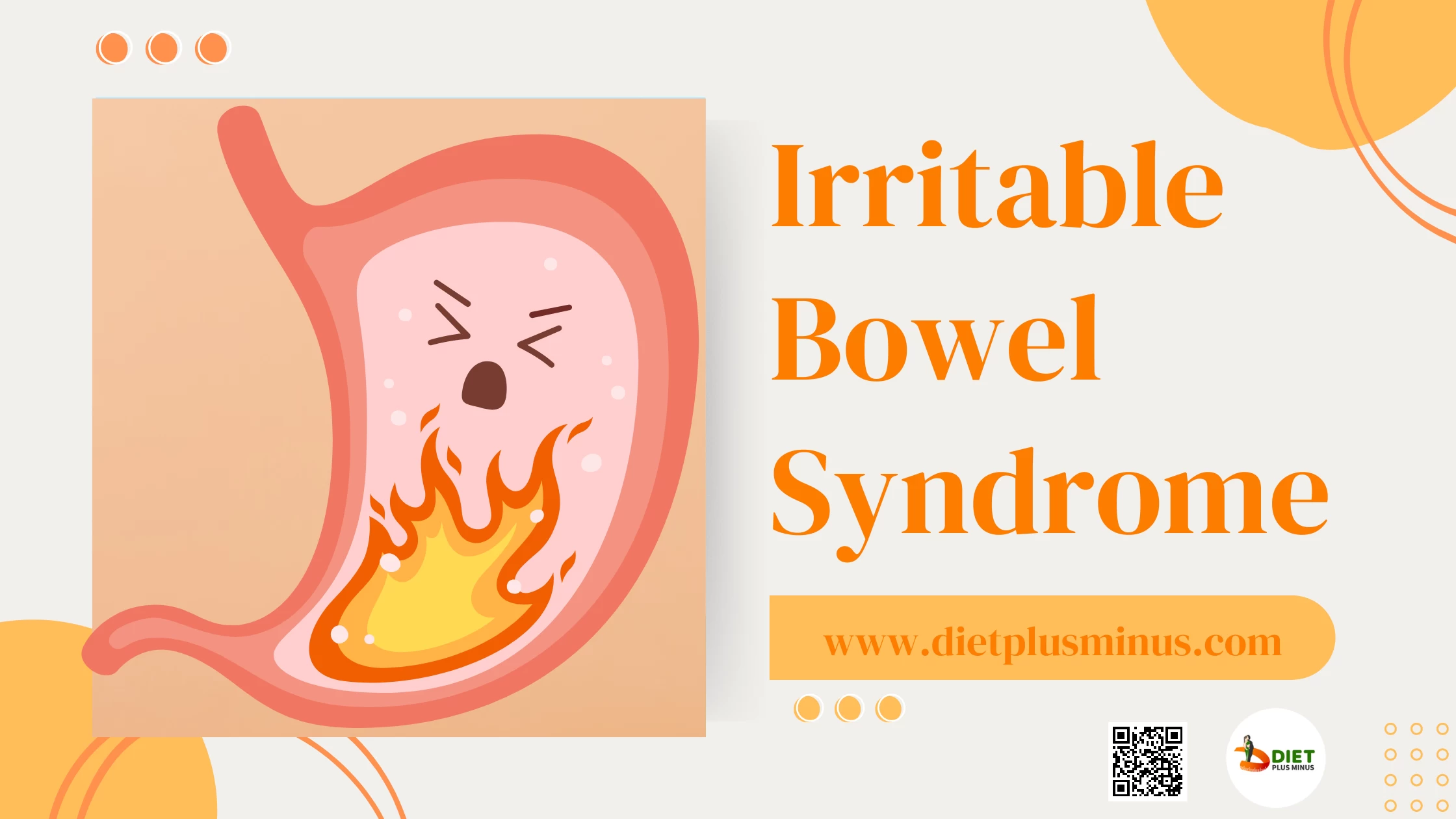
All Diet Plans
Irritable Bowel Syndrome (IBS) Diet

Subscription Plan
| Duration | Price | |
| 4 WEEKS SILVER PLANS | Rs 7000 | Express Checkout |
| 14 WEEKS DIAMOND PLANS | Rs 20000 | Express Checkout |
| Duration | Price | |
| Express checkout |
Table of Contents
Irritable Bowel Syndrome
Symptoms of Irritable Bowel Syndrome can include abdominal pain, cramping, bloating, gas, diarrhea or constipation. Other symptoms may include an urgent need to move the bowels and mucus in the stool. While these symptoms can be uncomfortable, they do not cause permanent damage to the intestines and are usually not a sign of a serious illness. Treatment for IBS typically includes dietary changes such as avoiding trigger foods that cause discomfort or eliminating gluten from the diet if gluten sensitivity is suspected. In addition, stress management techniques such as relaxation therapies, cognitive behavioral therapy and lifestyle modifications may help reduce symptoms associated with IBS. Medications such as antispasmodics and antidepressant medications may also be prescribed to help relieve IBS related symptoms.
Symptoms of IBS
IBS is distinguished by a range of symptoms. Some people may experience only mild or intermittent symptoms, while others may have severe and frequent episodes. The most common symptom of IBS is abdominal pain or discomfort. This can be described as cramping, bloating, gas, pressure, or stabbing pains – it may even feel like an electric shock in some cases. People with IBS often report changes in their bowel movements such as diarrhea, constipation and alternating between the two. Other potential symptoms include nausea, fatigue and headaches; however these are not considered to be diagnostic criteria for IBS. In addition to these physical symptoms, people with IBS also commonly experience psychological distress such as anxiety and depression due to the burden of having a chronic disorder with no known cure. As such, it’s important for individuals living with IBS to seek out appropriate support from family members and healthcare providers so that they can better manage their condition.
Causes of IBS
IBS can be caused by a number of factors, including genetic predisposition, stress and anxiety, food allergies or sensitivities, disruption in normal bacteria levels in the gut (dysbiosis), hormonal changes and reactions to certain medications. Research shows that IBS is closely related to psychological factors such as depression and anxiety; however, it is not known if these psychological issues cause IBS or are a result of having it. Additionally, while diet may play a role in IBS symptoms for some people, it’s not clear if dietary changes directly cause IBS. Recent research suggests that an imbalance in the microbiome may also contribute to the development of IBS symptoms. Dysbiosis occurs when there is an imbalance between beneficial bacteria and harmful bacteria levels within the digestive tract. This can lead to inflammation which can ultimately lead to gastrointestinal distress such as abdominal pain, constipation and/or diarrhea. Other environmental triggers like smoking or excessive alcohol consumption have also been linked to increased risk for developing IBS.
These factors may play a critical role in the development and expression of these chronic disorders
-
Prior infection
-
Inflammation
-
Stress
-
History of abuse to the gastrointestinal system - Injury to the enteric nervous system may be the common.
Diagnosis and Treatment
Diagnosis of Irritable Bowel Syndrome (IBS) is usually done through a thorough physical examination and extensive symptom evaluation. Tests such as blood tests, stool samples, imaging studies, endoscopy or colonoscopy may be used to rule out other medical conditions that could be causing the symptoms. The diagnosis of IBS is based on the Rome criteria which requires that patients have experienced recurrent abdominal pain or discomfort for at least three days a month in the last three months associated with two or more of the following: improvement with defecation, onset associated with change in frequency of stool, and/or change in form (appearance) of stool.
Treatment options for IBS include medications such as antispasmodics to help control the symptoms, dietary changes to reduce gas-producing foods or increase fiber intake, probiotics and psychological therapies such as cognitive behavioral therapy (CBT). Additionally lifestyle modifications including exercise and stress management can also be helpful in managing IBS symptoms. It is important to note that there is no single treatment course that works for everyone so it may take some time to find what works best for each patient.
Diet Changes for IBS
One of the most important diet changes for managing IBS is to reduce intake of foods that trigger symptoms. Common triggers include caffeine, alcohol, gluten and dairy. Eating smaller meals more frequently throughout the day can also help manage symptoms. Fiber-rich foods like fruits, vegetables and whole grains should be included in the diet as they can help regulate bowel movements. Limiting high-fat and fried foods, as well as artificial sweeteners may also be beneficial. Additionally, keeping a food diary can help identify triggers that cause uncomfortable digestive symptoms such as bloating or diarrhea.
Drinking sufficient water every day is essential for people with IBS because it helps soften stool and promote regularity. Consuming probiotics like yogurt or kefir has been shown to improve symptoms for some individuals by increasing good bacteria in the gut microbiome which helps regulate digestive function. Fermented foods such as kimchi or sauerkraut are other sources of beneficial bacteria which may be helpful for managing IBS symptoms. Finally, eating fiber supplements like psyllium husk powder can provide additional bulking action to stools which helps keep them regular and prevents constipation in some cases.
Coping Mechanisms
Relaxation techniques are an important coping strategy for people living with IBS. Mindfulness meditation, guided imagery, and yoga are all effective ways to reduce stress levels that can trigger IBS symptoms. Research has also shown that regular physical activity like walking or jogging can help to reduce stress and the associated IBS symptoms. Additionally, keeping a food diary can help identify triggers and understand how certain foods affect your body. Keeping track of your daily diet, activities, sleep patterns, and stress levels may improve your understanding of which factors may be contributing to your IBS symptoms. If necessary, it is also important to seek professional help from a therapist or counselor who specializes in helping individuals manage their mental health and chronic illness issues such as IBS.
Conclusion
In conclusion, Irritable Bowel Syndrome is a chronic and often uncomfortable condition that can be managed with lifestyle modifications and medications. It is important to find an individualized treatment plan that works for the patient and to involve other healthcare providers when needed. Eating a healthy diet, exercising regularly, reducing stress levels, avoiding triggers, and taking medications as prescribed are all ways to help manage symptoms of IBS. Additionally, it may be beneficial for individuals with IBS to keep a food diary or discuss their concerns with a gastroenterologist. With proper management and support from healthcare professionals, individuals living with IBS can find relief from their symptoms.
It is also important for those affected by IBS to seek out social support networks and education on the condition in order to increase understanding of the disorder among family members, friends, teachers and employers. This will ensure better awareness of what IBS is – as well as how it affects those living with it – so that individuals can take proactive steps towards managing their own health in the best way possible.
Functional Dyspepsia
Functional dyspepsia is a common health issue in the digestive system of humans. Around 1.5 billion people around the world face this issue. Although functional dyspepsia is not very lethal, it can surely affect the quality of your life as it can last for a long. It can be managed by taking medication, but diet and lifestyle changes are as important.
What Is Functional Dyspepsia?
Functional dyspepsia (indigestion) is the name given to some symptoms of indigestion that show up without any obvious cause.
So basically, your digestive system seems all okay, but there are symptoms of stomach pain, discomfort, bloating, etc. just like that of ulcers. It is also known as non-ulcer stomach pain or non-ulcer dyspepsia. It usually does not lead to any serious consequences, but it should not be neglected. Because, sometimes it can be caused by a bacteria called Helicobacter pylori, which can cause ulcers in the stomach in the long run.
This is the most common type of dyspepsia. The symptoms can vary, but its prominent symptoms include nausea, bloating and bleaching, stomach upset or pain, vomiting, etc. Other less common symptoms include burping, sour mouth, weight loss, psychological distress, etc. If these symptoms come and go away within a month, then you most probably don’t have functional dyspepsia.
Further, these symptoms can be suppressed by over-the-counter medication. But, dietplusminus recommends making necessary changes in diet and lifestyle as soon as possible to avoid unpleasant complications.
What Causes Functional Dyspepsia?
Functional dyspepsia does not have one single cause. It is not known what causes it. It is called 'functional' because it does not have a diagnosable cause. Several reasons may lead to this functional disorder.
Some of the causes include allergens, infection due to bacteria, excess acid secretion in the stomach, unhealthy diet, lifestyle, obesity, etc. Some factors are known to increase the risk of functional dyspepsia.
Females are known to develop this disorder more than males. Similarly, elders and chain smokers are at a higher risk of developing it. Moreover, studies have also shown that a history of childhood physical or sexual abuse may also be a risk factor. Further, there is an unknown link between irritable bowel syndrome (IBS) and indigestion. Because around one-third of the people affected by this disorder develop IBS.
Functional Dyspepsia Diet Idea
First of all, you need to make some lifestyle changes. Always eat slowly, as eating too fast affects the process of digestion. Also, eating foods that are high in fat can aggravate the symptoms. High alcohol consumption, as well as cigarette smoking, can also worsen the condition.
Studies have shown that some foods can effectively alleviate the symptoms of irritable bowel syndrome. These include:
-
Apples
-
Dates
-
Honey
-
Rice
-
Yogurt
-
Walnuts
While some food can aggravate the symptoms of irritable bowel syndrome:
-
Watermelon
-
Citrus juice
-
Carbonated drinks
-
Caffeine (coffee)
-
Oily and fatty foods
But, as the symptoms vary from person to person, so dietplusminus suggests that it is better to seek help from a medical practitioner to set up a proper diet plan.
Read more about Irritable Bowel Syndrome
Useful Links:
Register/Login ♦ Blog ♦ Subscription Plans ♦ Calculator ♦ Exercises ♦ All Testimonials ♦ Before and After ♦ Recipe ♦ Amazon Pantry♦Amazon Daily Deals ♦Shop with Amazon ♦Disclaimer ♦Privacy Policy ♦Terms and Conditions ♦ Facebook ♦ Twitter ♦ Linkedin ♦ Youtube
Your queries (FAQ)
We never promise an unrealistic goal. We help patients to understand the disease and process for their correction with lifestyle modification. Dedicated patients usually do it perfectly but after all the perfection some patients may not get the desired result. The main reason being hormonal issues, disease conditions like high insulin state, high estrogen state, hypothyroidism (low thyroid hormone), body disability, restricted body movement, lack of interest, unrealistic goals, etc. In this situation, we can try another method but keep in mind that every patient will get the same result is not true.
Read MoreYou may cancel your premium subscription plan within 7 days of subscription. The fee will be refunded after subtracting the consultation fee, processing fee, and bank transaction charges.
-
Please note that the above charges will be adjusted after deducting the Doctor Consultation charge (999/- or $30 (United States Dollars thirty)) and a processing fee of Rs. 750/- (Rupees seven hundred and fifty) for India or $20 (United States Dollars twenty) for locations outside India (including Taxes and bank charges, if any). The refund shall be processed in the manner/mode which is used to subscribe to the DietPlusMinus Plan within 30 (thirty) days from the date of cancellation.
-
If you have purchased a DietPlusMinus one diet chart plan, seven diet chart plan, one-month diet chart plan, you will not be eligible for a refund from DietPlusMinus.
No. We usually provide three meals in a day and in some diseases it's four to five meals. Mealtime you need to adjust according to your convenience as this is not only three months or six months program, you need to adopt a better eating habit for a lifetime.
Read MoreNo, usually we do not allow milk in the diet plan especially when you have enrolled for abdominal symptoms along with weight loss but milk products like curd, paneer, etc are allowed. The Milk keeps you full for a longer time as a result of fullness you may not eat the whole plate. Less calorie intake may start unintentional muscle loss so, if you need to drink milk then the best time is to drink in the evening. However, remember that drinking excessive amounts of milk may lead to weight gain due to high-calorie intake.
Read MoreYes, you can have snacks. Sprouted moong beans, green sprouts, almond milk, etc, and leftovers from the previous meal can be taken as snacks.
Read MoreNormally there are only three meals in a diet plan, but it can be changed depending upon your requirements.
Read More
We do not sell any products on Amazon. We are only affiliated with Amazon. The products suggested to you are based on the customer's reviews only. We are not giving any guarantee regarding the quality, quantity. When you are purchasing, please read everything carefully as we are not responsible for any products purchased on Amazon.
Read More
Diet customization needs a lot of effort. After the purchase of a subscription, we take a history including dietary history and analyze blood reports. We usually assign a diet within 3-5 working days after purchasing and after completion of all basic formalities like blood report analysis, history, etc
Read More

